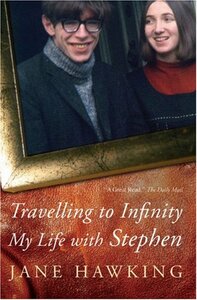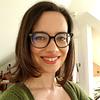Take a photo of a barcode or cover
Although lengthy and at times overly detailed, it is a moving account of the Hawking's life together. The honesty about the struggles they faced brings to light the struggles many families living with disability face.
I gave this book a proper chance but I can't go any further... It all got less and less interesting to me as the book progressed. There was way too much pointless information that wrapped around every single slightly interesting information that it just killed it.
I honestly don't think the blame is only on the author, definitely not! I made the mistake of having the book on my TBR for about 5 years, the expectations rising higher and higher and once I actually got to reading the book, a wall of disappointment hit me right in my face.
As I said before, I gave it a try but now I'm moving on. Because why to push yourself into reading something that you are not enjoying when you could be reading tons of other more interesting books in the meantime?!
I honestly don't think the blame is only on the author, definitely not! I made the mistake of having the book on my TBR for about 5 years, the expectations rising higher and higher and once I actually got to reading the book, a wall of disappointment hit me right in my face.
As I said before, I gave it a try but now I'm moving on. Because why to push yourself into reading something that you are not enjoying when you could be reading tons of other more interesting books in the meantime?!
After watching the film, I decided to read to book "The Theory of Everything" is based on. I was really astonished since, being the film a beautiful one, to my opinion the book is even better. Indeed, this is the personal story of Jane Hawking about her life with the famous scientist. The point of view is just her one and I really liked to follow her struggles in balancing her love for Stephen and for their children with her ambition as a women. The book is also very interesting because it describes how difficult life can be for a disable person, for the person herself, the family, how social life can be developed and how can the social system provide an help. While the film tells both the story of Stephen and Jane by presenting his career's success, the book is more intimate and just based on the female point of view of his wife. One of the best book I've read recently.
Interesting perspective on a genius's life, from someone who was very well equipped to observe and comment. Jane Hawking dissects her life with Stephen, and as I read it, I was struck by what she gave up to support him. She was no mean slouch, intellectually, herself, and yet, could really only support him, instead of shining her self. Engaging read.
Interesting . You would never imagine that things would go that way. But great sacrifice for Stephen's wife. And in the end Stephen wanted more. No matter how brilliant he was, the moment he had to be in wheelchair, their mindset became different. His wife sacrificed too much having his children ,raising thenon her own,helping him, denying herself love that came knocking on her door. So in the end he took somebody new who was more suitable to his condition. No matter of the sickness and years that flew by.
It is a great message , that no matter what happens to us, no matter how brilliant someone is, we are still humans and we still have human needs , acts and emotions. This book gave me some new perspective how to look at life despite the fact that i took it for the sake of discovering how Stephen got that kind of knowledge, i discovered lot more of a human he was and i've got more respect toward his ex wife.
It is a great message , that no matter what happens to us, no matter how brilliant someone is, we are still humans and we still have human needs , acts and emotions. This book gave me some new perspective how to look at life despite the fact that i took it for the sake of discovering how Stephen got that kind of knowledge, i discovered lot more of a human he was and i've got more respect toward his ex wife.
Jane Hawking certainly led a difficult, unusual and challenging life with Stephen Hawking. This is her story of that time, and it is an interesting perspective. Some aspects are discussed in minute detail - where they lived, the gardens, her PhD research subject, but other aspects still seem seen through a bit of a foggy lens by the reader — the relationships, the personalities, the inter-personal & family dynamics — still mystified me a bit how these all actually worked.
I let out a long sigh of relief when I finished this book because it is so long and tedious. I was shocked to learn that it is “the abridged version of the original memoir” (405) which ran to over 600 pages! I guess I should be grateful my book club chose this version!
This memoir by Jane Hawking is the story of her life with the world-famous physicist, Stephen Hawking. She describes their first encounters, their courtship, and their 25-year marriage. The focus is on her struggles to cope with her husband’s increasing dependence as his body degenerated while simultaneously meeting the needs of their three children. In a postlude, she briefly describes their lives after their divorce.
The book needs a thorough editing. There is too much discussion of irrelevant material. For example, does the reader really need to know that Jane “found many similarities between the kharjas and the cantigas de amigo, which were possibly the result of Mozarabic migrations northward” (200) or that Castilian villancicos are full of medieval iconography symbolizing the multiplicity of the aspects of love (236)? Why is a two-page biography of Newton included (331-332)? In a memoir, I don’t expect to read that “In the thirteenth century, Alfonso the Wise of Castile expanded the role of Toledo as a major centre for translation” (103). After a while, the impression is that the author is trying to convince us of her erudition.
Then there’s the needless repetition. How often must we read about the difficulties she experienced trying to write her thesis, the problems she had with Stephen’s nurses, the fatigue she suffered, the thin veneer of normality they tried to maintain, or the innocence of her relationship with Jonathan? With the latter, a quote from Hamlet came to mind: "The lady doth protest too much, methinks.” At times the book reads like a series of lists: we get lists of friends, lists of places where she and Stephen travelled for conferences, lists of social functions she hosted, lists of concerts she attended, etc.
Undoubtedly, Jane faced great challenges and deserves recognition for her role in Stephen’s life. By caring for him and the family as she did, she aided his advancement in his pursuits. By just describing what she did, she would earn the reader’s respect and sympathy. The problem is that instead of letting her story speak for itself, she whines and complains. At times the book seems one long complaint. Everything has to come back to her. She is upset because she didn’t receive gifts when Stephen received honours. She wants sympathy because she had the shingles. She becomes so agitated when people question her about Tim’s father after she has brought another man into the household? This constant tone of “Woe is me” makes her seem selfish and petty and draws attention away from her unquestionable accomplishments.
What the reader is not given in the book is a real understanding of the relationship between Stephen and Jane. Listing her responsibilities and Stephen’s accomplishments does little to show how the two of them were together. Stephen does not come across very positively: he was intellectually arrogant; he was utterly absorbed in physics to the detriment of his family; he needed to be the centre of attention; he was dismissive of Jane’s interests; and he was uncommunicative. As I’ve already stated, Jane comes across as whiny. At the beginning, she describes herself as someone “who managed to see the funny side of situations” and was “fairly shy, yet not averse to expressing . . . opinions” (6), yet her sense of humour seems non-existent and one of her problems is her self-effacement. She also shows little self-awareness because she implies that she is a victim, that this life just happened to her, whereas she made a choice to marry Stephen knowing his diagnosis and the prognosis. I’m left with a question: did she marry Stephen because she loved him? Theirs does not seem to be a great love affair. From the beginning, their relationship seems detached, certainly not passionate. She seems to stay with Stephen out of a sense of obligation, more than love.
The book jacket mentions the author’s “candour” but I found her often evasive. For instance, when mentioning Stephen’s nurse, who became his second wife, Jane says, “Probably with her he had found someone tougher than me with whom he could again somehow have a physical relationship” (378). So Jane and Stephen were no longer intimate? Later, she says, “Flames of vituperation, hatred, desire for revenge leapt at me from all sides, scorching me to the quick with accusations” (379). All sides?
On the topic of editing, I may come across as petty, but I must point out the careless proofreading of the book: “they behaved with caution and towed the party line” (149) and “Irritatingly their gossip was as pervasive as the smoke from their cigarettes, I and found myself compelled to listen” (170) and “Both her age and her sex enabled her to avoid the some of the pressures” (226) and “In conclusion the author looked forward to the time when mankind would able to ‘know the mind of God’” (289). And how about sentences with seven prepositional phrases: “At Cern Stephen would be working on the implications for the direction of the arrow of time of quantum theory and of the observations from the particle accelerator (286-287). And what editor would allow the phrase “the elderly Indian squaw” (91)?!
The reason I tend to avoid memoirs is that they are inevitably one-sided. I prefer to get several perspectives since the truth usually lies somewhere in the middle of each person’s version of events. An article I read stated, “Jane decided it was time to answer her critics with a final definitive description of the marriage, purging the bitterness occasioned by the 'horrendously painful' divorce that tainted the first book” (http://www.stuff.co.nz/entertainment/books/4627634/Hawkings-ex-writes-second-memoir). This begs the question: what bias taints this book? The film The Theory of Everything was apparently based on this memoir, but the film is not faithful to the book. Is the book faithful to what really happened?
Anyone looking for real insight into the relationship between Stephen Hawking and his first wife will not find it here. The book is a long and tiresome read; consequently, its effect is not to give the author the respect and recognition she craves and deserves.
Please check out my reader's blog (https://schatjesshelves.blogspot.com/) and follow me on Twitter (@DCYakabuski).
This memoir by Jane Hawking is the story of her life with the world-famous physicist, Stephen Hawking. She describes their first encounters, their courtship, and their 25-year marriage. The focus is on her struggles to cope with her husband’s increasing dependence as his body degenerated while simultaneously meeting the needs of their three children. In a postlude, she briefly describes their lives after their divorce.
The book needs a thorough editing. There is too much discussion of irrelevant material. For example, does the reader really need to know that Jane “found many similarities between the kharjas and the cantigas de amigo, which were possibly the result of Mozarabic migrations northward” (200) or that Castilian villancicos are full of medieval iconography symbolizing the multiplicity of the aspects of love (236)? Why is a two-page biography of Newton included (331-332)? In a memoir, I don’t expect to read that “In the thirteenth century, Alfonso the Wise of Castile expanded the role of Toledo as a major centre for translation” (103). After a while, the impression is that the author is trying to convince us of her erudition.
Then there’s the needless repetition. How often must we read about the difficulties she experienced trying to write her thesis, the problems she had with Stephen’s nurses, the fatigue she suffered, the thin veneer of normality they tried to maintain, or the innocence of her relationship with Jonathan? With the latter, a quote from Hamlet came to mind: "The lady doth protest too much, methinks.” At times the book reads like a series of lists: we get lists of friends, lists of places where she and Stephen travelled for conferences, lists of social functions she hosted, lists of concerts she attended, etc.
Undoubtedly, Jane faced great challenges and deserves recognition for her role in Stephen’s life. By caring for him and the family as she did, she aided his advancement in his pursuits. By just describing what she did, she would earn the reader’s respect and sympathy. The problem is that instead of letting her story speak for itself, she whines and complains. At times the book seems one long complaint. Everything has to come back to her. She is upset because she didn’t receive gifts when Stephen received honours. She wants sympathy because she had the shingles. She becomes so agitated when people question her about Tim’s father after she has brought another man into the household? This constant tone of “Woe is me” makes her seem selfish and petty and draws attention away from her unquestionable accomplishments.
What the reader is not given in the book is a real understanding of the relationship between Stephen and Jane. Listing her responsibilities and Stephen’s accomplishments does little to show how the two of them were together. Stephen does not come across very positively: he was intellectually arrogant; he was utterly absorbed in physics to the detriment of his family; he needed to be the centre of attention; he was dismissive of Jane’s interests; and he was uncommunicative. As I’ve already stated, Jane comes across as whiny. At the beginning, she describes herself as someone “who managed to see the funny side of situations” and was “fairly shy, yet not averse to expressing . . . opinions” (6), yet her sense of humour seems non-existent and one of her problems is her self-effacement. She also shows little self-awareness because she implies that she is a victim, that this life just happened to her, whereas she made a choice to marry Stephen knowing his diagnosis and the prognosis. I’m left with a question: did she marry Stephen because she loved him? Theirs does not seem to be a great love affair. From the beginning, their relationship seems detached, certainly not passionate. She seems to stay with Stephen out of a sense of obligation, more than love.
The book jacket mentions the author’s “candour” but I found her often evasive. For instance, when mentioning Stephen’s nurse, who became his second wife, Jane says, “Probably with her he had found someone tougher than me with whom he could again somehow have a physical relationship” (378). So Jane and Stephen were no longer intimate? Later, she says, “Flames of vituperation, hatred, desire for revenge leapt at me from all sides, scorching me to the quick with accusations” (379). All sides?
On the topic of editing, I may come across as petty, but I must point out the careless proofreading of the book: “they behaved with caution and towed the party line” (149) and “Irritatingly their gossip was as pervasive as the smoke from their cigarettes, I and found myself compelled to listen” (170) and “Both her age and her sex enabled her to avoid the some of the pressures” (226) and “In conclusion the author looked forward to the time when mankind would able to ‘know the mind of God’” (289). And how about sentences with seven prepositional phrases: “At Cern Stephen would be working on the implications for the direction of the arrow of time of quantum theory and of the observations from the particle accelerator (286-287). And what editor would allow the phrase “the elderly Indian squaw” (91)?!
The reason I tend to avoid memoirs is that they are inevitably one-sided. I prefer to get several perspectives since the truth usually lies somewhere in the middle of each person’s version of events. An article I read stated, “Jane decided it was time to answer her critics with a final definitive description of the marriage, purging the bitterness occasioned by the 'horrendously painful' divorce that tainted the first book” (http://www.stuff.co.nz/entertainment/books/4627634/Hawkings-ex-writes-second-memoir). This begs the question: what bias taints this book? The film The Theory of Everything was apparently based on this memoir, but the film is not faithful to the book. Is the book faithful to what really happened?
Anyone looking for real insight into the relationship between Stephen Hawking and his first wife will not find it here. The book is a long and tiresome read; consequently, its effect is not to give the author the respect and recognition she craves and deserves.
Please check out my reader's blog (https://schatjesshelves.blogspot.com/) and follow me on Twitter (@DCYakabuski).
emotional
hopeful
informative
inspiring
relaxing
sad
medium-paced
En bok som markant gjennomgår, forteller om og reflekterer rundt livet til familien av en kjent personlighet som også har en dødelig, funksjonshemmende sykdom. Jane Hawking forteller godt om hvordan hun har opplevd vanskelige tider og fine tider ved siden av Stephen Hawking, hvordan det har vært vanskelig for henne selv og for barna deres å vokse opp og leve fulle, anerkjente liv når en konstant står nevnt i samme setning som en av de mest kjente vitenskapsmennene i historien. Boken viser også et bilde av hvordan situasjonen har vært for henne som partneren til Stephen, og hvordan hun etterhvert innså at hun for alle andre bare var et tillegg i en biografisk fascinasjon over livet til Stephen, som hadde klart så mye akademisk samtidig som han har levd flere tiår lengre enn han originalt fikk diagnostisert. Det er trist å lese de avsluttende kapitlene om hvordan Jane opplevde en stadig større utfordring med å leve rundt en etterhvert mer, som det viser seg, ‘pompøs’ kjendis som ofte ville være det eneste fokus i enhver situasjon, og hvordan det sakte brøt opp forholdet. Samtidig er det et bilde på det statlige støtteapparatet og hvordan det kan være idealisert på et generelt grunnlag og også støttet på det planet, men samtidig totalt feiler med tilbudet som når frem til en selv. Boka har til tider ikke vært veldig engasjerende å lese, og jeg hadde en lengre pause på, ser det ut til, to år før jeg tok den opp igjen halvveis ut i kapitlene (pappa lånte den da jeg dro til Storbritannia i 2017), men det var totalt sett en interessant bok å lese.
Living each day as it came, rather than projecting some fanciful mirage on the distant future, was becoming a way of life. In my simple, post-natal frame of mind, I was convinced that if the world were to be run by the mothers of newborn babies rather than the hardened old men inciting brash youths to violence, wars would cease overnight.
Och, nádherná kniha! Niekedy ma rušili až príliš detailné opisy, ale autorka ponúkla krásny náhľad do duše ženy (a zároveň aj muža fyzika). Cítiť z nej velku lásku a aj bolesť. Je veľmi autentická a zaradila som ju medzi najkrajšie knihy, ktoré som prečítala.






